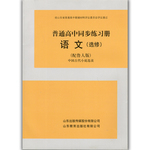题目内容
短文改错
Colleges and universities in America consider a great deal of things about a student who want to be admitted. They says the most important thing is the student's high school record. Admission officers look only at the grades that the student has had earned. They also look at the level of difficulty of the classes. A student's interests and activities may also play a part of getting accepted. But in most cases another consideration is how good the student does in college entrance exams. This week in us Foreign Student Series, we will discuss two of these test: the SAT or the ACT. Most American schools accept either one.
练习册系列答案
 普通高中同步练习册系列答案
普通高中同步练习册系列答案 优翼小帮手同步口算系列答案
优翼小帮手同步口算系列答案
相关题目


